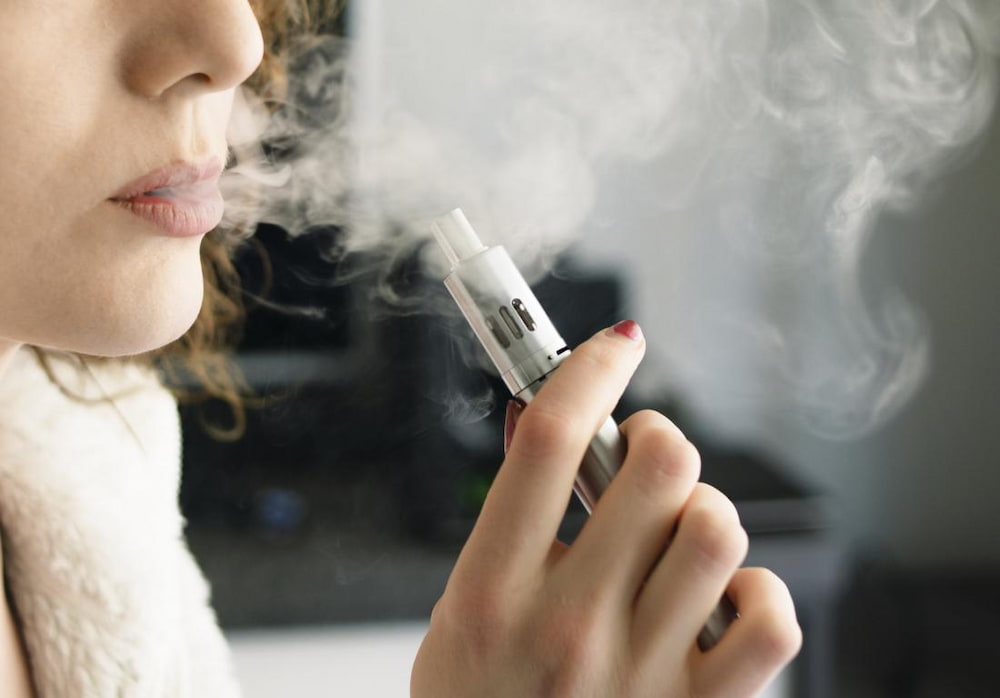How To Pass A Nicotine Test For Health Insurance? The Ultimate Guide
Your family will be benefited if you make the wise choice to buy life insurance in the unlikely event that the worst case scenario occurs. It is unfortunate that smokers frequently have to pay more for life insurance than non-smokers.
With the help of these tests, even a single cigarette smoked more than 40 hours ago can be located. Because nicotine-containing products are excreted in the urine for a very long time, their detection even after a very long time is straightforward.
Reading this article will help you understand how to pass a nicotine test for health insurance.
Table of Contents
How To Pass A Nicotine Test For Health Insurance?
Read About The Restrictions On Using Tobacco
Smoking is one of the many factors that insurance companies may take into account before giving insurance quotes. Chewing tobacco, vape products containing tobacco, e-cigarettes, nicotine patches, nicotine gum, and other nicotine substitutes might also be contributing factors.
To stop using nicotine products and reduce your costs, it’s essential to understand which ones will increase your premiums.
Be Sincere On Your Application To Avoid A Penalty
The truth about the habits of nicotine users must be disclosed to the insurance company as required by law. Failure to do so could result in higher premiums and even the rejection of an insurance application if nicotine is found in the bloodstream.
To Reduce Withdrawal Symptoms, Opt For Healthy Alternatives
To precisely measure the level of nicotine in the body, the insurance provider may choose a test that involves taking blood samples or mouth swabs.
If you’ve decided to pass the test and are unable to use any nicotine supplements, you can lessen your withdrawal symptoms by chewing on regular chewing gum, cinnamon sticks, apples, other fruits, and any edibles.
Unless The Insurer Has Given The Go-ahead, Avoid Switching To Marijuana
Regardless of the source or whether you have a prescription for it, many insurance companies discourage or outright forbid their policyholders from smoking or inhaling marijuana.
If this substance is mentioned anywhere in your policy, be sure to read it carefully. If you have any questions, get in touch with your insurance provider.
Who Is Considered A Non-smoker? Inquire With The Insurance Company
Some insurance companies define non-smokers as people who haven’t smoked in the past five months or more, while other insurers might define non-smokers as people who haven’t used any nicotine products in the past year or more.
By being aware of these recommendations, you can decide how long to refrain from using nicotine products before the test.
Regular Smokers May Want To Quit Cold Turkey
If you don’t use nicotine often, quitting cold turkey a week before the test is a good idea. To ensure that there are no traces of nicotine in your blood, you should stop using nicotine two weeks before the test.
Before The Nicotine Test For Life Insurance, Detox Your System
Avoiding nicotine products for at least two weeks will help your body detox before the insurance test. Along with drinking plenty of liquids, you should also consume fresh fruit juices, warm water with lemon, and herbal teas flavored with ginger and dandelion.
Commercial detoxification aids might not be of much use. The best course of action is to choose herbal products that you can rely on and go natural.
Exercise For At Least Two Weeks Prior To The Nicotine Test
Sweating out toxins as a result of exercise helps to flush the bloodstream of nicotine that has accumulated there. Exercise can also help you feel less anxious and prevent you from needing to smoke, chew tobacco, or use any other nicotine-containing products before the test.
Always choose a reasonable exercise schedule as opposed to a strict one that you will break after a few days. Walking, jogging, swimming, and cycling are the best forms of exercise for stress relief and toxin release.
How Is The Test Conducted?
There are a couple of ways to test for nicotine and cotinine, the product created after nicotine enters your body:
- Testing qualitatively: It merely determines whether or not you have nicotine in your system.
- Measures the amount of nicotine or cotinine in your body, according to quantitative testing. More details about your smoking habits are revealed. If you’ve recently quit smoking or are still a smoker, it can tell. It can tell if you’ve been breathing in a lot of tobacco smoke or not if you don’t use tobacco.

What Are The Test’s Requirements?
Usually, the tests look for cotinine rather than nicotine. This is due to the fact that cotinine is more stable and stays in your body for longer. You would only have cotinine in your body if you processed nicotine.
A blood or urine test may reveal the presence of cotinine. A lab technician will insert a needle into your vein to collect a sample if you need to have a blood test. If you have to submit a urine sample for a urine test, it will be chosen at random, so it can be taken at any time of day.
If you’ve stopped smoking or using other tobacco products and are now using a nicotine replacement product, you might need a test that looks for nicotine, cotinine, and anabasine, a substance that is present in tobacco but absent from nicotine replacement products.
Anabasine is a substance that can only be detected through a positive test, which means you are still using tobacco. If you were only using nicotine replacement therapies, it wouldn’t manifest.
See more about What Is Gap Health Insurance?
How Long Does Nicotine Stay In My System?
Just a few seconds after you light up, the level of nicotine in your blood increases. But how much depends on how much you inhale and how much nicotine is in the cigarette. A person’s genetic makeup can also affect how they react to nicotine.
After quitting smoking, your blood usually loses its nicotine within 1 to 3 days, and your cotinine within 1 to 10 days. After 3 to 4 days of quitting tobacco products, you won’t be able to find any nicotine or cotinine in your urine.
The amount of cotinine in your urine may increase if you smoke menthol cigarettes or breathe in secondhand menthol smoke.
Since it can be detected for up to 4 days, a saliva test is thought to be the most sensitive method of cotinine detection. Hair analysis is a reliable method for determining long-term tobacco use and can be extremely accurate for up to three months after you stop using tobacco. Even after a year, it can still detect nicotine.
What Do Results Mean?
If you used tobacco but gave it up about two to three weeks before the test, your nicotine levels may be moderate.
If they are exposed to tobacco smoke in their environment, it is possible for people who don’t use tobacco to test positive for a small amount of nicotine.
If the test can’t detect any nicotine or cotinine in your system (or it can only detect very low levels), you probably don’t use tobacco and haven’t inhaled any smoke from your surroundings, or you did but you’ve quit using tobacco and nicotine products for a few weeks.
Does Smoking Affect A Life Insurance Policy’s Price?
Smoking has an impact on insurance costs with the majority of life insurance companies, but not all. Each insurer’s underwriting guidelines will determine how smoking affects your policy’s premiums.
When you apply for coverage, the underwriting process for life insurance starts. In order to calculate the statistical probability that you will pass away while covered, a knowledgeable underwriter will take into account a number of significant aspects of your health. Underwriting is a tool used by insurers to try and reduce their risk and ensure that they don’t pay out more in death benefits than they receive in premiums.
Your risk is taken into account by underwriters as they increase your premiums. Insurance companies increase premiums in response to smokers’ increased risk of cancer and other conditions that could lead to death.
The price of coverage and whether you’ll be accepted will also depend on your age and medical history. As a result, older smokers will pay more than younger smokers, and those who have had a health condition previously will also have to pay higher premiums or may even be denied coverage altogether.
It’s crucial for smokers to compare prices before purchasing life insurance because different insurers have different policies regarding how much smoking affects the price of coverage. A few insurers even contend that smoking won’t increase rates at all.
What Tests Do Life Insurance Companies Use To Determine Smoking Status?
Several different methods exist for life insurers to determine whether you smoke during the underwriting process.
Usually, you’ll be asked to fill out a health questionnaire, which will ask you questions about your history with nicotine. In fact, you’ll probably need to say whether you’ve ever smoked as well as whether you do now. If you say “yes” to using nicotine, insurers will probably charge you more than a non-smoker.
Before purchasing coverage, many insurers also demand that you get a physical. You’re probably going to get a nicotine test during this physical. This could involve a saliva, blood, or urine test. Additionally, some substances may be tested for in hair. The presence of nicotine in your hair is more likely to be detected than in a urine, saliva, or blood sample.
What Will Happen If I Lie About Smoking?
Since these tests will probably catch you out, you shouldn’t lie on your health questionnaire about how often you smoke. Lying on your health questionnaire is a terrible idea, even if the life insurer doesn’t find out that you smoke during the pre-insurance exam.
You risk losing the coverage you believed you had if you lie and the insurer later learns you actually smoke, perhaps because nicotine is still present in your system when you pass away. That’s because lying on your questionnaire is considered in some states to be a “material misrepresentation.”
By purchasing insurance, you are legally entering into a contract with the insurer. The contract could be nullified if a material misrepresentation was made, in which case your insurer wouldn’t be obligated to pay the death benefit. In others, if you pass away while covered, your insurer might be required to make a payment to your beneficiaries, but the death benefit could be significantly reduced if the insurer discovers you lied about smoking.
The risk of lying to get insurance is too high because your family might not be financially protected even after years of premium payments.
Final Words
Smoking raises your life insurance rates when you shop for insurance and could prevent you from getting the best life insurance because it increases your risk of passing away. Even though nicotine is very addictive, it is possible to stop using it. The likelihood of abstinence rises when both conventional and alternative approaches to treating withdrawal symptoms are used.
While some insurers may offer insurance for smokers, keep in mind that these plans come at a high cost in the form of premiums and policy exclusions.
I appreciate you reading.

